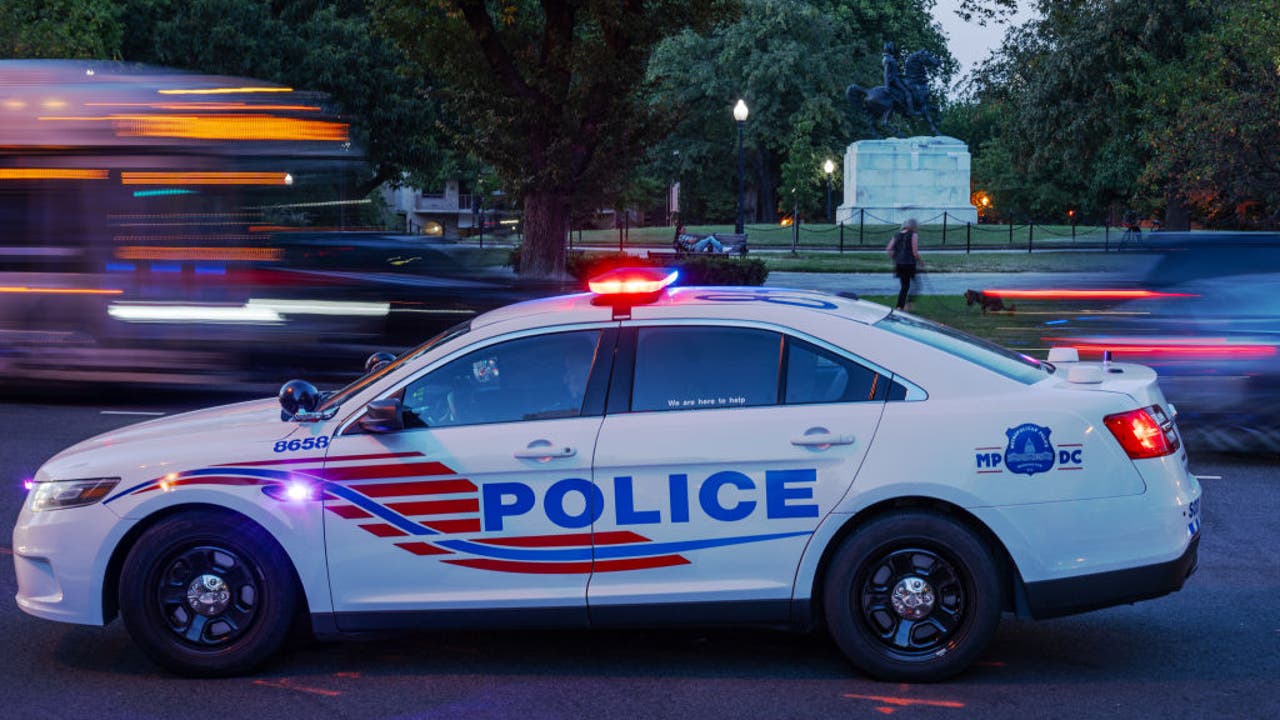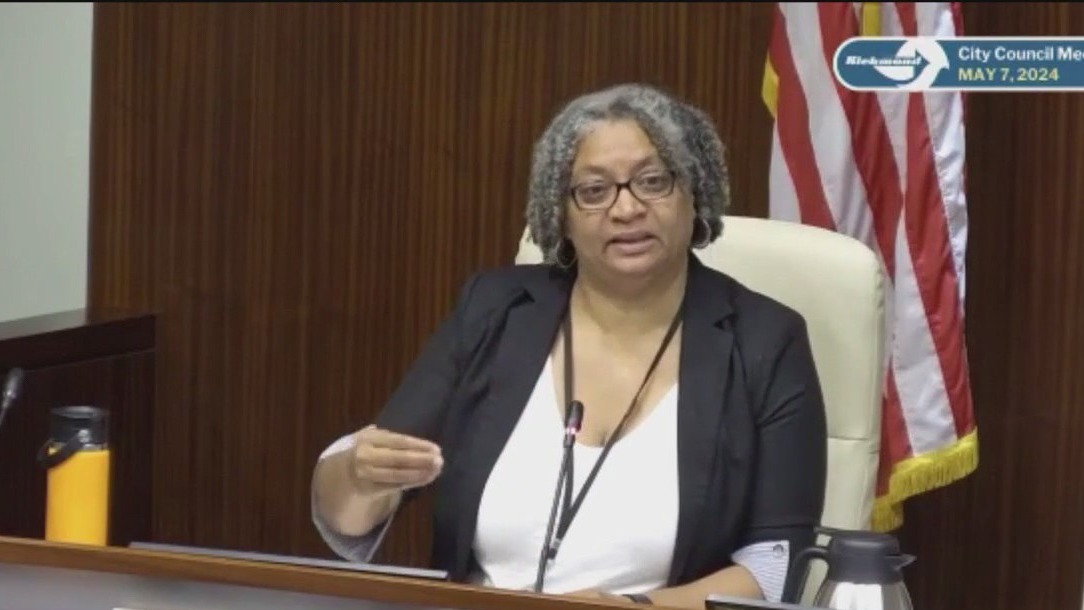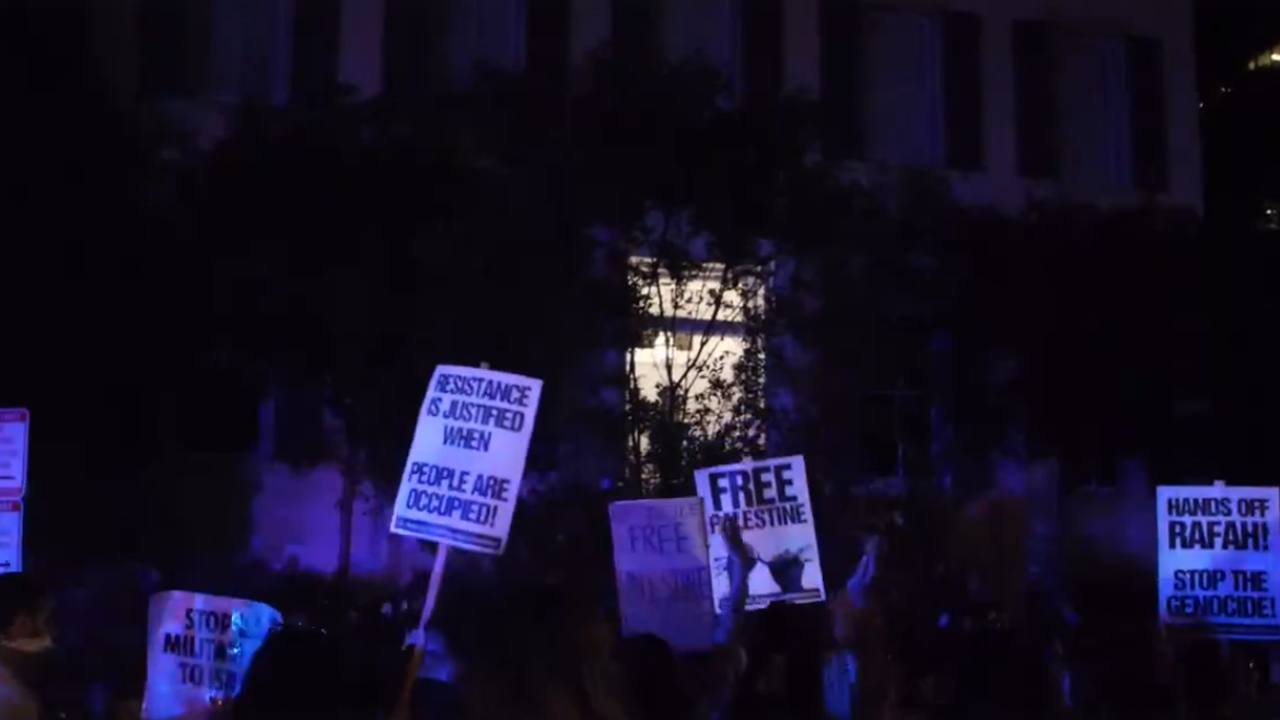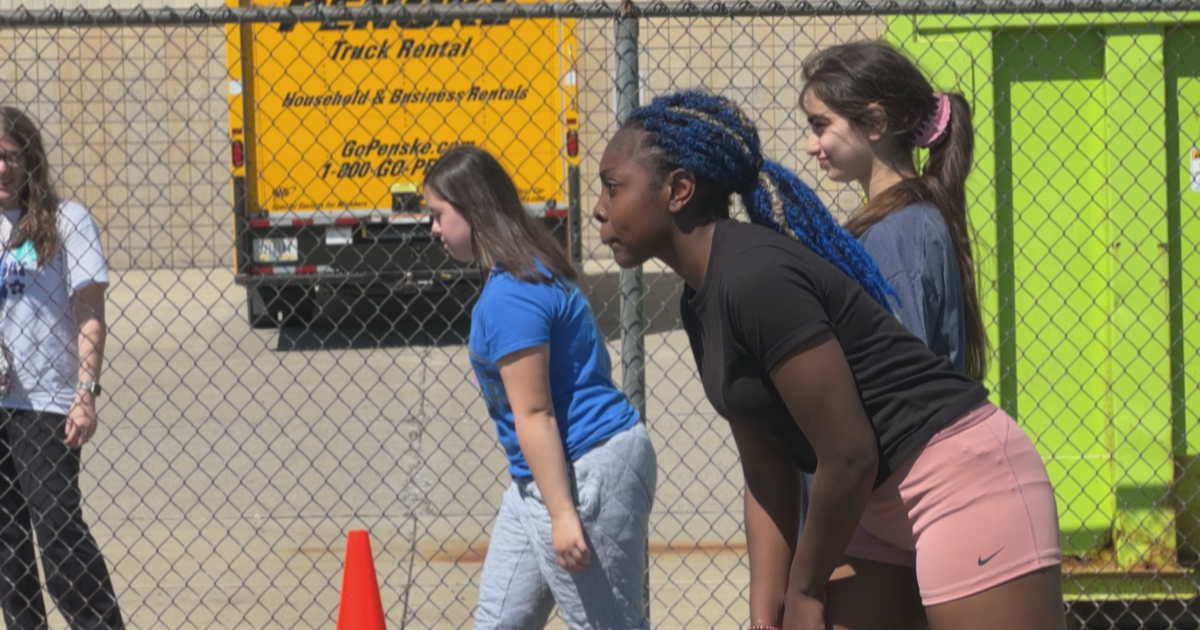New Mexico
New Mexico trail clash echoes culture war across US West
/cloudfront-us-east-2.images.arcpublishing.com/reuters/IDNKVVZ75FOKJHCH2OKIPOVKDI.jpg)
[1/4]Spencer Bushnell, a mountain biker, rides in front of foothills, where the U.S. Forest Service is facing rising demand for trails and access to the national forest, in Taos, New Mexico, U.S., June 27, 2023. REUTERS/Andrew Hay
TALPA, N.M., July 7 (Reuters) – Physiotherapist Spencer Bushnell lives less than a mile from farmer Carlos Arguello in Taos, New Mexico. But they are worlds apart on proposals to lace the foothills they love with up to 71 miles of mountain bike and hiking trails.
The two volunteered this year for a U.S. Forest Service working group to tackle surging trail demand and disappearing public access to hills studded with piñon and juniper trees after a post-pandemic, “Zoom boom” wave of new residents and second-home-owners.
That put the neighbors on the frontline of a culture war raging across the West as multi-generational families, conservationists and sometimes conservatives fight trail systems sought by incomers and recreationist locals. Opponents say the trails will harm water supply and wildlife, raise wildfire risk and stoke gentrification.
Two bike trail projects have been nixed in as many months on public land in Oregon and Colorado. The Taos process has split the mountain resort town of 6,600.
Bucking hay bales off his fields irrigated with foothills water, Arguello said he and other “locals” on the group last month dropped out of the process and withdrew their trail proposals – which had exclusion zones for elk areas and cultural heritage sites. The locals did not want to be seen as advocating any trails because of opposition from their community, he said. That left mainly proposals from pro-trails residents on the table.
“This is an assault on our watershed,” said Arguello, 67, who fears an international mountain-bike destination is in the making, rather than trail proponents’ vision of a phased plan to increase community livability over 15-20 years.
As the sun was rising over Taos Mountain, Bushnell biked near upmarket homes bordering the national forest where owners have built fences and gates in the last two years to block entrance.
“This community is losing its public access to its own public lands,” said Bushnell, 41, who grew up biking on trails built in Bend, Oregon as that city boomed.
Across the United States, Americans are moving to places with trees and trails, many working remotely.
Trail use on public land has as much as tripled since the start of the pandemic, according to Carl Colonius, head of New Mexico’s Outdoor Recreation Division, who pioneered a plan for managing demand on Taos’ Talpa foothills.
Studies by the Headwaters Economics think tank say trails attract new residents and entrepreneurs, boosting public health and tax income, but the influx can lead to less affordable housing and force out long-time residents unless economies diversify.
In Taos’ tourism-dependent county, known for its blend of Indigenous, Hispano and Anglo cultures, the average price of a condo increased 69 percent since 2019 to $327,000, according to Zillow. Under five percent of working households can afford the median home price in a county where the largest income bracket is households earning under $15,000 a year, studies have shown.
The group hardest hit has been Hispanos such as Arguello – the descendants of colonial settlers – whose share of the county population has fallen around 20 percentage points in the last two decades from over half to about a third, according to census data.
Darryl Maestas says newcomers show a sense of entitlement when they propose carving a network of trails where Puebloan Indians and members of a Catholic religious brotherhood have held ceremonies over the centuries.
“Either the other side doesn’t get it, or they don’t care and just want it all anyway,” said Maestas, a farmer who returned to family land after three decades working from South Korea to Afghanistan as an aircraft mechanic for the U.S. military.
The imposing area was first taken from Native Americans by Hispanos, turned into common land by Spanish land grants, then occupied by the USFS in the late 1960s after being clear cut by a timber company.
Homemaker Emily Matheu moved to Taos from Oakland, California four years ago and has advocated for trails.
“I was told on the mamas group Taos doesn’t need any more people here like me, people that move here from California and buy a condo and use the outdoors as their personal gym,” said Matheu, 43, referring to a Facebook page for mothers.
USFS District Ranger Michael Lujan said he would continue community engagement on the foothills over user conflicts and forest damage on their 43 miles of informal trails.
Reporting By Andrew Hay; Editing by Donna Bryson and Alistair Bell
Our Standards: The Thomson Reuters Trust Principles.

New Mexico
Sinkhole in New Mexico, firefighters rescue golf clubs – KYMA
LAS CRUCES, N.M. (NBC, KYMA/KECY) – A large sinkhole swallowed two cars in front of a home in Las Cruces, New Mexico Monday.
The sinkhole is said to be about 30-feet wide and 30-feet deep.
The dangerous situation forced officials to evacuate the home, as well as nearby residents. The street is also closed to traffic until experts can determine the cause of the sinkhole.
One bright spot from this incident: Firefighters were able to rescue a set of golf clubs and a cart for a high school student who is set to compete in the state championships. Her clubs were trapped in one of the cars at the bottom of the sinkhole.
The firefighters figured out how to reach the car and pull the clubs from the hazard, teeing up the student’s chance to take a swing at a state title.
Now that’s a hole-in-one for those brave firefighters.
KYMA KECY is committed to providing a forum for civil and constructive conversation.
Please keep your comments respectful and relevant. You can review our Community Guidelines by clicking here
If you would like to share a story idea, please submit it here.
New Mexico
House Speaker Mike Johnson called on to pass nuclear weapons reparations for New Mexicans
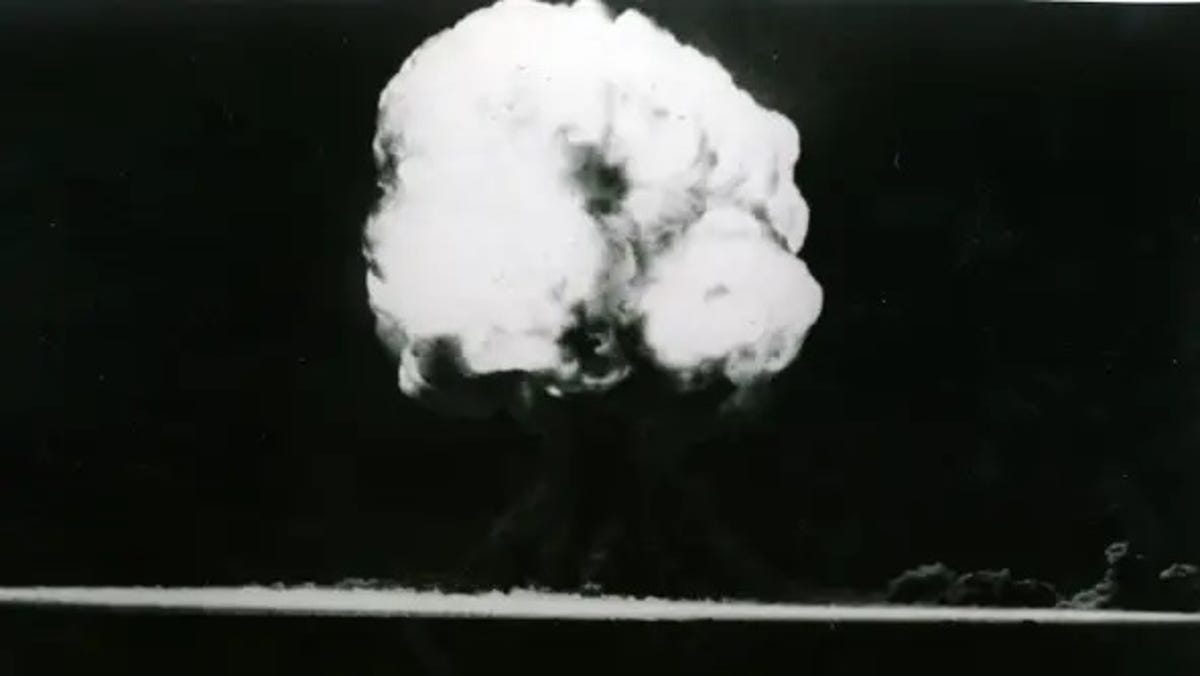
From Margot Robbie to Tom Cruise, the ‘Barbenheimer’ fever is building
With two big films, “Barbie” and “Oppenheimer,” hitting theaters, moviegoers and stars are opting for the “Barbenheimer” double feature.
Entertain This!, USA TODAY
Reparations for New Mexicans impacted by nuclear weapons testing could be held up in the GOP-led House of Representatives after the U.S. Senate passed a bill in March to provide payments to those suffering health impacts tied to the tests.
The U.S.’ first nuclear bomb was tested in New Mexico in 1945 at the Trinity Site near Alamogordo, setting off a generational wave of cancers and other health impacts for nearby residents. The Radiation Exposure Compensation Act (RECA) passed in 1990 to fund federal payments to those who could prove their health was impacted by weapons testing but did not include reparations for New Mexicans near the Trinity Site.
That could change thanks to legislation sponsored by U.S. Sen. Ben Ray Lujan to expand RECA to include New Mexico residents near the test, known as “downwinders.” The law currently provides payments to downwinders of the Nevada Test Site in multiple states.
After passing the Senate, supporters of the bill urged the U.S. House and Speaker Mike Johnson (R-LA) to take up and pass the measure before the law’s funding sunsets in about a month on June 7.
Lujan, along with Sen. Martin Heinrich (D-NM) and several other members of the chamber including GOP senators along with U.S. Reps. Teresa Leger Fernandez (D-NM) and Melanie Stansbury (D-NM) and members of the House, penned a letter to Johnson demanding the bill be moved on to President Joe Biden’s desk to become law.
The letter pointed to the Oscar-winning film “Oppenheimer” released in July 2023 about the events at Trinity to show an increased awareness for the test and its potential impacts on the New Mexican people.
“The landmark film Oppenheimer has brought renewed attention to these events, particularly highlighting the first nuclear explosion in New Mexico in 1945,” the letter read. “The ‘downwinders,’ along with those involved in uranium mining, milling and transportation, are still enduring the health impacts from their exposure to this radiation.”
The lawmakers argued the nuclear test exposed nearby residents to radiation, creating illnesses passed through generations that many are still struggling with today.
“Their livelihoods, often devastated by the long-term consequences of radiation exposure, depend on your leadership and commitment to rectifying past injustices. Let us honor the commitment we made to these citizens by ensuring they receive the support and recognition they so rightly deserve,” read the letter.
More: US Senate OKs funding bill for New Mexicans impacted by Trinity Site
GOP bill extends but does not expand nuclear testing reparations
A Republican-led bill sponsored by Sen. Mike Lee (R-Utah) was introduced in April to extend the RECA program for two more years but did not add language to allow New Mexicans to receive payments or expand the program to any other communities.
“When the government harms people, victims should be able to receive compensation. Downwinders and others harmed by the nation’s early atomic program often suffer the consequences of exposure decades after the fact,” Lee said in a statement.
The omission of New Mexico downwinders was a sticking point for the Union of Concerned Scientists. The national organization called Lee’s bill a “slap in the face” to downwinders in New Mexico and other states impacted by nuclear testing.
“I would ask Senator Lee: how do we decide who deserves to be taken care of and who doesn’t? Who gets to make these decisions? Why are people in certain zip codes considered more important than others?” said Tina Cordova, founder of the New Mexico Downwinders Consortium and a native of Tularosa.
She said it was Congress’ and the federal government’s duty to repay New Mexicans and other impacted for the health of affects of nuclear weapons in the U.S.
“We urgently need for our government to take responsibility for the egregious harm that was done to American citizens, including children, when nuclear testing was taking place in the American west and the Pacific,” Cordova said.
“Not only did that testing negatively affect the health of those alive at the time, it destined our children and grandchildren forevermore to a life never free of the genetic damage associated with our overexposure to radiation. I can think of no other act that is more immoral than this.”
Adrian Hedden can be reached at 575-628-5516, achedden@currentargus.com or @AdrianHedden on the social media platform X.
New Mexico
NM high court upholds man's convictions in 2018 triple homicide

The New Mexico Supreme Court has upheld a man’s murder convictions in the 2018 shooting deaths of three people near the community of Dixon.
In a unanimous decision, the state’s high court concluded Monday that there was sufficient evidence to support John Powell’s convictions of three counts of first-degree murder and one count of aggravated burglary in 2020.
The bodies of April Browne, 42; Abraham Martinez, 36; and Kierin Guillemin, 27, were found in a Rio Arriba County home a few miles from Dixon.
FUGITIVE SHOOTING SUSPECT ARRESTED WITHOUT INCIDENT IN NORTHERN ARIZONA
Authorities said a surveillance camera recorded the killings and theft of a safe and other items from Browne’s home by Powell and his brother, Roger Gage.
Gage was convicted separately in the case and sentenced to life in prison.
The New Mexico Supreme Court has upheld the homicide convictions of John Powell.
Last year, the state Supreme Court affirmed Gage’s convictions of three counts of first-degree willful and deliberate murder.
Authorities said Powell and his brother drove for more than an hour to reach Browne’s house purportedly to get tools and buy drugs.
Chief Justice David K. Thomson wrote in the high court’s nonprecedential decision that “the entire assault, including removing the safe and laptops, lasted only 52 seconds.
CLICK HERE TO GET THE FOX NEWS APP
“A juror could reasonably determine that the precisely choreographed actions in the video demonstrate the type of careful thought sufficient for deliberation,” Thomson wrote.
-

 Politics1 week ago
Politics1 week agoHouse Republicans brace for spring legislative sprint with one less GOP vote
-

 World1 week ago
World1 week agoAt least four dead in US after dozens of tornadoes rip through Oklahoma
-

 Politics1 week ago
Politics1 week agoStefanik hits special counsel Jack Smith with ethics complaint, accuses him of election meddling
-

 Politics1 week ago
Politics1 week agoAnti-Trump DA's no-show at debate leaves challenger facing off against empty podium
-

 Politics7 days ago
Politics7 days agoThe White House has a new curator. Donna Hayashi Smith is the first Asian American to hold the post
-

 News1 week ago
News1 week agoAs student protesters get arrested, they risk being banned from campus too
-

 News1 week ago
News1 week agoVideo: Police Arrest Columbia Protesters Occupying Hamilton Hall
-

 World1 week ago
World1 week agoNine on trial in Germany over alleged far-right coup plot
